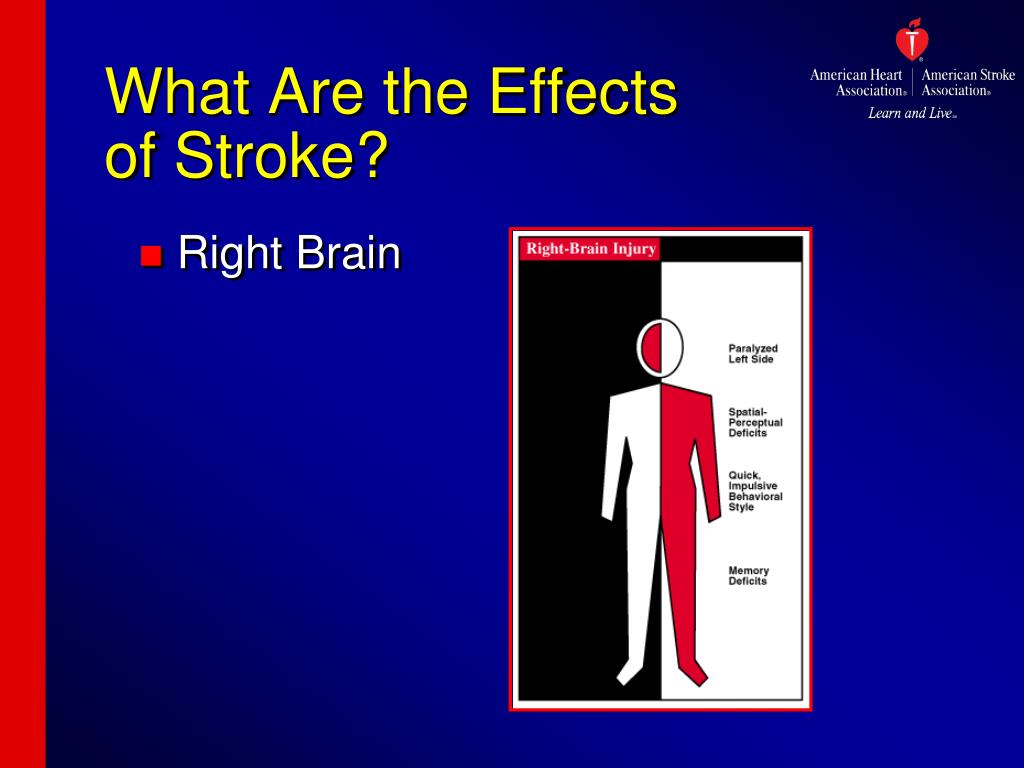
This is because the language center of the brain resides in the left hemisphere. When stroke affects speech, it’s often the result of a left hemisphere stroke. Then we will discuss available treatment options.
#Stroke affecting speech how to
To help you understand how to recover speech after stroke, this article will outline how stroke can affect speech. Both conditions can inhibit a stroke survivor’s speech and communication. While reports indicate that he is still unable to form a complete sentence, his therapist claims that it wouldn’t be out of the question for him to return to the stage in three years.Has a stroke affected your speech? It could be a sign of aphasia or apraxia of speech. Will Randy Travis be able to talk or share his award-winning singing voice again? It may be too early to tell. The National Stroke Association has a detailed chart of all symptoms associated with stroke. People with Broca’s aphasia often have right-sided weakness or paralysis of the arm and leg because the frontal lobe is also important for motor movements. Because of this, they are often aware of their difficulties and can become easily frustrated. For example, a person with Broca’s aphasia may say, “Walk dog,” meaning, “I will take the dog for a walk,” or “book book two table,” for “There are two books on the table.” People with Broca’s aphasia typically understand the speech of others fairly well. They often omit small words such as is, and, or the.

People with Broca’s aphasia have damage to the frontal lobe of the brain, resulting in speaking in short phrases that make sense but are produced with great effort. Non-fluent aphasia is often referred to as Broca’s aphasia. These individuals usually have no body weakness because their brain injury is not near the parts of the brain that control movement. People with Wernicke’s aphasia usually have great difficulty understanding speech, and they are often unaware of their mistakes. For example, someone with Wernicke’s aphasia may say, “You know that smoodle pinkered and that I want to get him round and take care of him like you want before.” It is often difficult to follow what the person is trying to say. There are two basic types of Aphasia: fluent and non-fluent. People with fluent aphasia, also called Wernicke’s or receptive aphasia, may speak in long sentences that have no meaning, add unnecessary words, and even create made-up words. The disorder impairs the expression and understanding of language as well as reading and writing abilities. While Aphasia usually occurs suddenly, often as the result of a stroke or head injury, it may also develop slowly, as in the case of a brain tumor, an infection, or dementia. Aphasia is a disorder caused by damage to the portions of the brain that are responsible for language. One of the biggest effects of stroke on speech and language is Aphasia. In some left-handed people, language is controlled by the right side of the brain and awareness by the left side of the brain. The right side of the brain controls the ability to pay attention, recognize objects and people, hear or touch, and be aware of your own body. The left side of the brain controls the ability to speak and understand language. Some of the problems that happen after stroke are more common when stroke occurs on one side of the brain versus the other. Two types of Stroke and the effects on Speech and Language What does this mean? If a stroke affects the left side of the brain, there will be problems with the right side of the body. Movement and sensation for one side of the body is controlled by the opposite side of the brain. According to the National Stroke Association, stroke, or cerebrovascular accident (CVA) usually affects one side of the brain. After his stroke in July 2013, he was able to restore much of his motor functions with physical therapy, but has not regained his speech.


Image courtesy of Whether or not you are a country music fan, you may have heard recently that grammy-winning country singer Randy Travis has been left unable to speak or sing due to a stroke he suffered last year.


 0 kommentar(er)
0 kommentar(er)
